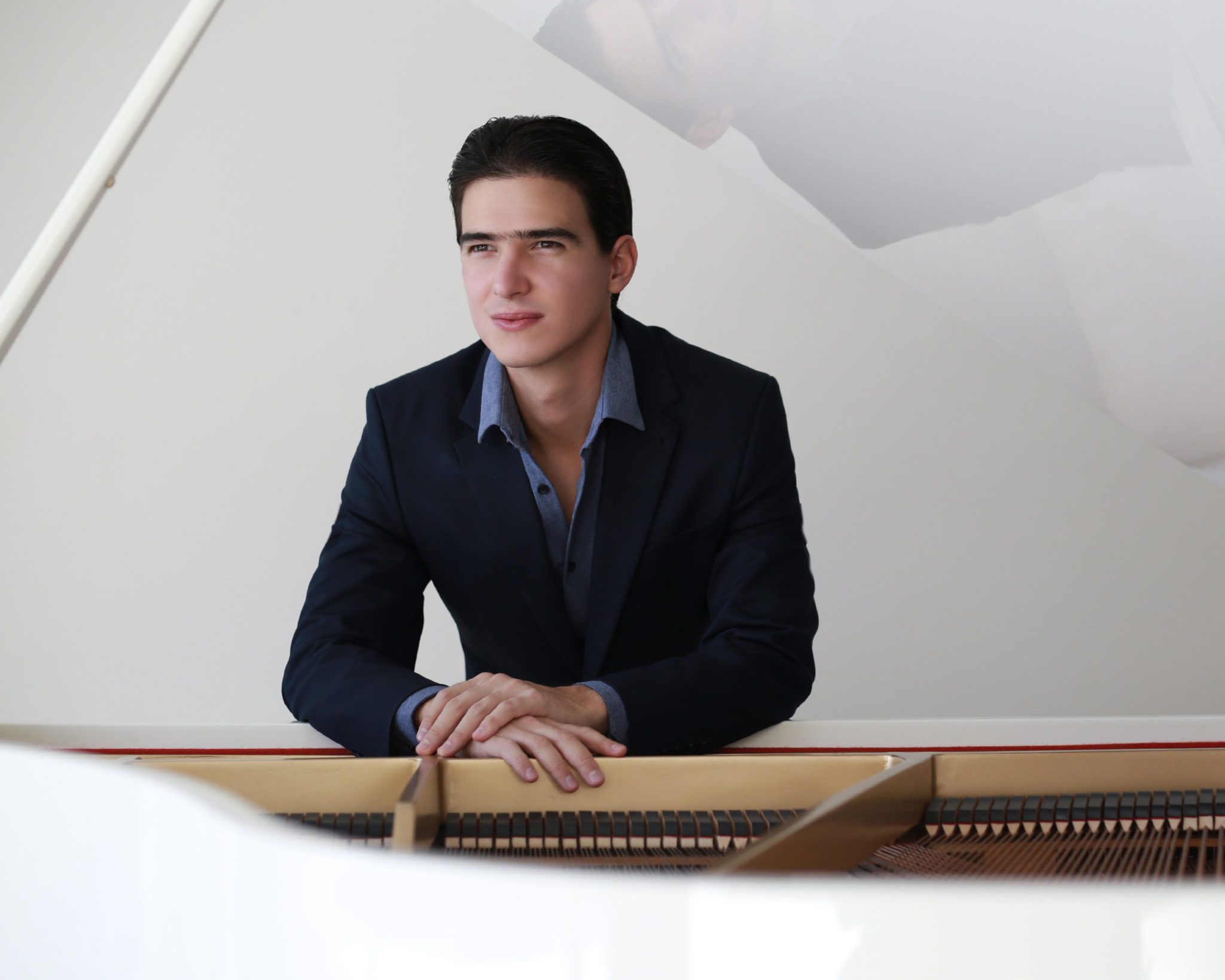ARTIST PROFILE: Composer Julián Fueyo MUS ’23 receives national recognition for ‘The Eleventh Heaven’

Courtesy of Diana Terrazas
Composer Julián Fueyo MUS ’23 is intent on understanding modernity through ancient concepts. Following the premiere of Fueyo’s piece “El Onceavo Cielo,” or “The Eleventh Heaven,” he received national recognition for it as a first-year student at the School of Music.
“The Eleventh Heaven” won two prestigious awards this past year for composition students in the United States: the 68th Annual BMI Student Composer Award and the ASCAP 2020 Morton Gould Young Composer Award.
Fueyo said his piece was inspired by the 11th level of heaven in the Indigenous Nahua culture’s cosmology and the visuals that were preserved from this prehispanic culture. The Nahua people are the largest Indigenous group in Mexico.
“My work is inspired by the motivations behind the decisions that artists took in ancient times,” Fueyo said. “My music tries to explore ancient aesthetics, ideas and understanding in our rapidly changing contemporary culture.”
Fueyo added that it is important to question how human development can affect local and global anthropology.
Fueyo grew up in Tampico, Mexico. He studied piano and violin when he was young and eventually began conducting in high school. During that time, Fueyo often conducted his local orchestra when violence in Tampico from the drug wars at the time prevented its director from attending.
In 2013, Fueyo continued his musical education at the Interlochen Arts Academy in Michigan.
“It was a miraculous thing that I went — it was an adventure, in many ways, a musical and personal adventure,” Fueyo said.
After attending Interlochen, Fueyo studied composition at the Cleveland Institute of Music. He received several notable awards in Cleveland, including the first prize at the Robert Avalon International Competition for Composers, Abundant Silence Composition Contest and Cleveland Composers Guild Collegiate Composition Contest.
Arseniy Gusev, his composition studio mate at the Cleveland Institute of Music, said that Fueyo’s music and personality “immediately caught [his] attention.” Gusev, who won the Singapore International Piano Competition in February, recently commissioned Fueyo to compose a piece for him to perform.
Gusev said that Fueyo’s art has “a unique sense of beauty,” which Fueyo shows in his music through themes of mythology and visual art. He also said that Fueyo’s “devotion to his creativity and tireless curiosity” leads him to new explorations and discoveries.
During his first year at the School of Music, Fueyo studied under Hannah Lash, associate professor of composition. Lash said Fueyo was “musical, intelligent, curious and ambitious,” and described his music as “lush, harmonic and often lyrical.”
Fueyo is currently on a gap year. The pandemic is uniquely challenging for composers like Fueyo, who traditionally compose for orchestras and other large groups.
“We’ve had to reinvent ourselves a bit,” Fueyo said.
For example, since certain compositions — especially those including wind instruments or singers — are difficult to perform while adhering to mask-wearing regulations, Fueyo has begun exploring small ensemble and solo pieces.
He is also using the break to think about his future career. Fueyo mentioned he was excited to collaborate with the “extraordinary community of [passionate] people” at Yale. In particular, Fueyo is looking to collaborate with a creative writer to produce a song cycle or operetta exploring the role of female leadership in operatic narratives, and he hopes to evaluate current anthropological and cultural phenomena through this piece.
Maia Decker | maia.decker@yale.edu








